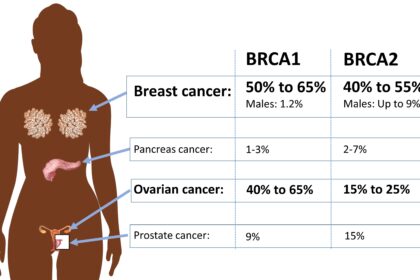Spermidine is a naturally occurring polyamine compound that comes from se-men (spelled wrong intentionally as to not flag the algorithms) and some specific plants. It plays a crucial role in various cellular processes. Polyamines are organic compounds that contain multiple amino groups. They are found in all living organisms and are essential for cell growth, proliferation, and differentiation. Spermidine, specifically, is synthesized from the amino acid ornithine and is involved in numerous biological functions.
One of the primary functions of spermidine is its role in autophagy, a cellular process that involves the degradation and recycling of damaged or unnecessary cellular components. Autophagy plays a vital role in maintaining cellular homeostasis and has been linked to various health benefits, including improved longevity and protection against age-related diseases. Spermidine has been shown to induce autophagy, thereby promoting the clearance of cellular waste and damaged proteins. By enhancing autophagy, spermidine helps maintain cellular health and functionality.
Mitochondria, often referred to as the powerhouse of the cell, are responsible for generating energy in the form of adenosine triphosphate (ATP). Spermidine has been shown to have positive effects on mitochondrial function. It stimulates mitochondrial biogenesis, the process of creating new mitochondria, and enhances mitochondrial respiration, thereby improving energy production. By supporting mitochondrial health, spermidine may help combat age-related decline in cellular energy metabolism and contribute to overall vitality.
Cardiovascular health is another area where spermidine has demonstrated beneficial effects. Studies have shown that spermidine can help regulate blood pressure and reduce the risk of cardiovascular diseases. It acts as a natural vasodilator, helping to relax blood vessels and improve blood flow. Spermidine also exhibits anti-inflammatory properties, reducing inflammation in the cardiovascular system and protecting against atherosclerosis, the buildup of plaque in the arteries. These cardiovascular benefits make spermidine a promising compound for promoting heart health.
In addition to autophagy, mitochondrial function, and cardiovascular health, spermidine has been implicated in several other health benefits. Research suggests that spermidine may have anti-aging effects by promoting cellular rejuvenation and improving the function of various organs and tissues. It has been shown to enhance cognitive function and protect against neurodegenerative diseases, such as Alzheimer’s and Parkinson’s disease. Spermidine also exhibits anti-cancer properties by inhibiting tumor growth and promoting programmed cell death in cancer cells.
Qualia Life 2.0 is a dietary supplement that incorporates spermidine as one of its key ingredients. The product is designed to support cellular health and overall well-being. By including spermidine in its formulation, Qualia Life 2.0 aims to enhance autophagy, improve mitochondrial function, and promote cardiovascular health. The addition of spermidine to this supplement may offer potential benefits in terms of longevity, cognitive function, and protection against age-related diseases. However, it’s important to note that the specific effects of Qualia Life 2.0 and its ability to deliver spermidine’s benefits may vary among individuals.
The inclusion of spermidine in dietary supplements like Qualia Life 2.0 further highlights its growing recognition as a valuable compound in the field of health and wellness. Use the discount code: HEALTHYWILDANDFREE for 10% off your order.
Beyond the previously mentioned benefits, spermidine offers a range of additional advantages:
- Neuroprotection: Spermidine has been found to protect against neurodegenerative diseases by promoting neuronal health, reducing oxidative stress, and enhancing cognitive function.
- Anti-inflammatory effects: Spermidine exhibits anti-inflammatory properties that can help reduce chronic inflammation in the body, which is associated with various diseases.
- Immune system support: Spermidine has immune-modulating effects, promoting a balanced immune response and enhancing immune cell function.
- Antioxidant activity: Spermidine acts as an antioxidant, neutralizing harmful free radicals and protecting cells from oxidative damage.
- Wound healing: Spermidine has been shown to promote wound healing by stimulating cell proliferation and supporting tissue regeneration.
- Bone health: Spermidine plays a role in maintaining bone health by supporting bone formation and preventing bone loss.
- Skin health: Spermidine has been found to have beneficial effects on skin health, promoting collagen synthesis, improving elasticity, and reducing the signs of aging.
- Metabolic regulation: Spermidine has been shown to influence metabolic processes, including lipid metabolism and glucose homeostasis, contributing to healthy metabolic function.
- Prevents arterial calcification: Spermidine has been found to have a protective effect against arterial calcification, a process in which calcium deposits build up in the arteries, leading to stiffening and narrowing. By inhibiting the formation of calcified plaques, spermidine helps maintain the flexibility and health of arterial walls, reducing the risk of cardiovascular diseases such as atherosclerosis and arterial stiffness. This benefit further underscores the potential of spermidine in promoting cardiovascular health and reducing the incidence of heart-related conditions.
- Cancer Fighting Properties: Arguably one of the most important benefits of spermidine is its potential as a cancer-fighting compound. Several studies have investigated the anti-cancer properties of spermidine and have shown promising results.Spermidine has been found to exhibit anti-proliferative effects on various cancer cell types. It has the ability to inhibit the growth and division of cancer cells, thereby slowing down tumor progression. Additionally, spermidine has shown the potential to induce programmed cell death, known as apoptosis, in cancer cells, effectively eliminating them.Furthermore, spermidine has been found to modulate multiple signaling pathways involved in cancer development and progression. It can regulate key molecular targets implicated in cell cycle control, DNA repair, and cell survival pathways. By targeting these pathways, spermidine interferes with the growth and survival of cancer cells.
Research also suggests that spermidine may enhance the effectiveness of certain cancer treatments. It has been shown to sensitize cancer cells to chemotherapy drugs, making them more susceptible to the treatment. This synergy between spermidine and chemotherapy can potentially improve treatment outcomes and reduce drug resistance.
It’s important to note that while these findings are promising, more research is needed to fully understand the mechanisms and potential applications of spermidine in cancer therapy. However, the existing evidence highlights spermidine’s potential as a valuable adjunct in the fight against cancer.
In summary, spermidine offers numerous health benefits, and its potential as a cancer-fighting compound makes it a particularly significant area of research. While it is crucial to consult with healthcare professionals and stay updated on the latest scientific advancements, spermidine’s multifaceted effects on cellular health, autophagy induction, mitochondrial function, cardiovascular health, anti-inflammatory properties, immune support, neuroprotection, wound healing, bone health, skin health, metabolic regulation, and prevention of arterial calcification position it as a promising compound for supporting overall well-being.
Click here to get Qualia Life 2.0, which is one of the newest supplements on the market that contains spermidine in its formula. Use the discount code: HEALTHYWILDANDFREE for 10% off your order.
Please note, this is a review of Qualia life, not Qualia Life 2.0. When you checkout on the Neurohacker.com website by clicking here, be sure to order Qualia Life 2.0, which includes Spermidine in its new formula.
The Top 5 Spermidine Rich Foods:
- Wheat Germ: Wheat germ is the embryo of the wheat kernel and is rich in spermidine. It can be consumed as a standalone supplement or added to cereals, smoothies, or baked goods.
- Soybeans: Soybeans and soy-based products such as tofu and tempeh contain significant amounts of spermidine. Incorporating these plant-based protein sources into your diet can provide you with spermidine along with other essential nutrients.
- Mushrooms: Certain varieties of mushrooms, including shiitake and white button mushrooms, contain decent levels of spermidine. Adding mushrooms to your meals can help increase your spermidine intake.
- Corn: Corn, particularly the germ and bran components, contains spermidine. Enjoying fresh corn on the cob or incorporating corn-based products into your diet can be a way to include spermidine in your meals. Make sure that you only buy and eat organic corn, not gmo!
- Peas: Green peas and other legumes like chickpeas and lentils contain spermidine. These versatile and nutritious legumes can be incorporated into salads, stews, soups, or used as a side dish to boost your spermidine intake.
It’s important to note that the spermidine content in foods can vary based on factors such as freshness, storage, and cooking methods. Additionally, while these foods are known to contain spermidine, the exact amounts may vary. Including a variety of spermidine-rich foods in your diet can help ensure a sufficient intake of this beneficial compound.





